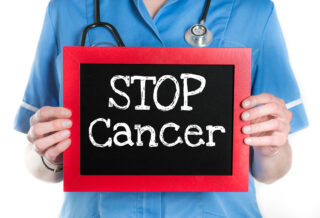
Annapolis Integrative Medicine
1819 Bay Ridge Avenue
Suite 180
Annapolis, MD 21403

More Cancer Awareness Articles
Cancer: Improving the Odds

In the U.S. cancer will claim the lives of at least 600,000 people annually, and approximately 2 million new cases of cancer will be diagnosed each year. The three most common cancers among men are prostate cancer, lung cancer and colorectal cancer, in that order of frequency. The three most common cancers among women are breast, lung, and colorectal cancers. Not as commonly known is that lung cancer is the cancer that kills most women, even more than breast cancer.
The genetics we are born with certainly play a big role in determining our susceptibility to cancer. While we can’t change our genetics, there is a great deal of information available, which teaches us the things we can do (and not do) to increase our chances of not developing cancer or to survive cancer.
It has been estimated by the American Cancer Society that being overweight or obese contributes to 20% of all cancer cases. . With two-thirds of Americans being overweight and half of those being obese, this becomes a very important statistic. At lease 20 cancers are associated with being overweight. And cancer death rates are 50-60% higher in obese men and women.
Physical inactivity is also directly associated with risk of contracting various cancers. A person’s degree of physical activity is also likely predictive of their chances of surviving cancer.
A high Vitamin D level is likely protective against both breast and prostate cancer (though there is some conflicting data). The high incidence of prostate cancer among African American men may well be due to the high rate of Vitamin D deficiency in people with darker skin (which prevents the sun from creating Vitamin D).
Alcohol and tobacco use are clearly associated with increased risks of certain cancers. But other dietary influences such as saturated and trans fats and other environmental exposures can cause cancer.
So what can you do to improve your odds?
1. Eat lots of vegetables and fruits (of different colors), limit meat and dairy, exercise regularly. Don’t smoke (or quit if you do) and limit your alcohol intake.
2. Routine screening for the cancers we are able to screen for is very important whether or not you have a family history. This includes mammograms in women, colonoscopy to screen for colon cancer beginning at age 45, lung cancer screening in smokers (or those who quit smoking in the past 10-15 years), prostate screening in men and PAP smears for women to screen for cervical cancer. As well, dermatology evaluation to screen for skin cancer can save lives.
3. If you have a family history of a particular type of cancer it would be worth discussing other testing or surveillance with your doctor and consider a referral to an oncologist or geneticist to discuss further.
4. If you are overweight or obese. Weight loss will improve your odds, and there are now new options that are very effective for weight loss.
5. And finally if you notice a change in your health, if you feel a “lump” or new pain somewhere, or you just dont feel right, it is well worth it to get it checked out. Though it may turn out to be nothing, early detection of a cancer gives you the best chance of effective hopefully curative treatment.
Other Articles You May Find of Interest...
- What are the risks of breast cancer, and can the disease be prevented?
- American Cancer Society Launches Largest U.S. Population Study of Black Women for a Deeper Understanding of Cancer Disparities
- The Revolution of Robotic Surgery In Colorectal Procedures: Smaller Incisions, Faster Recovery
- Fighting Cancer for All: Why Diversity in Clinical Trials Matters
- Bill Johnson’s Lung Cancer Crusade: Fighting for a Radon-Free Life
- Ovarian Cancer Prevention
- Wellness Technology From Nature, Light And Frequency

















